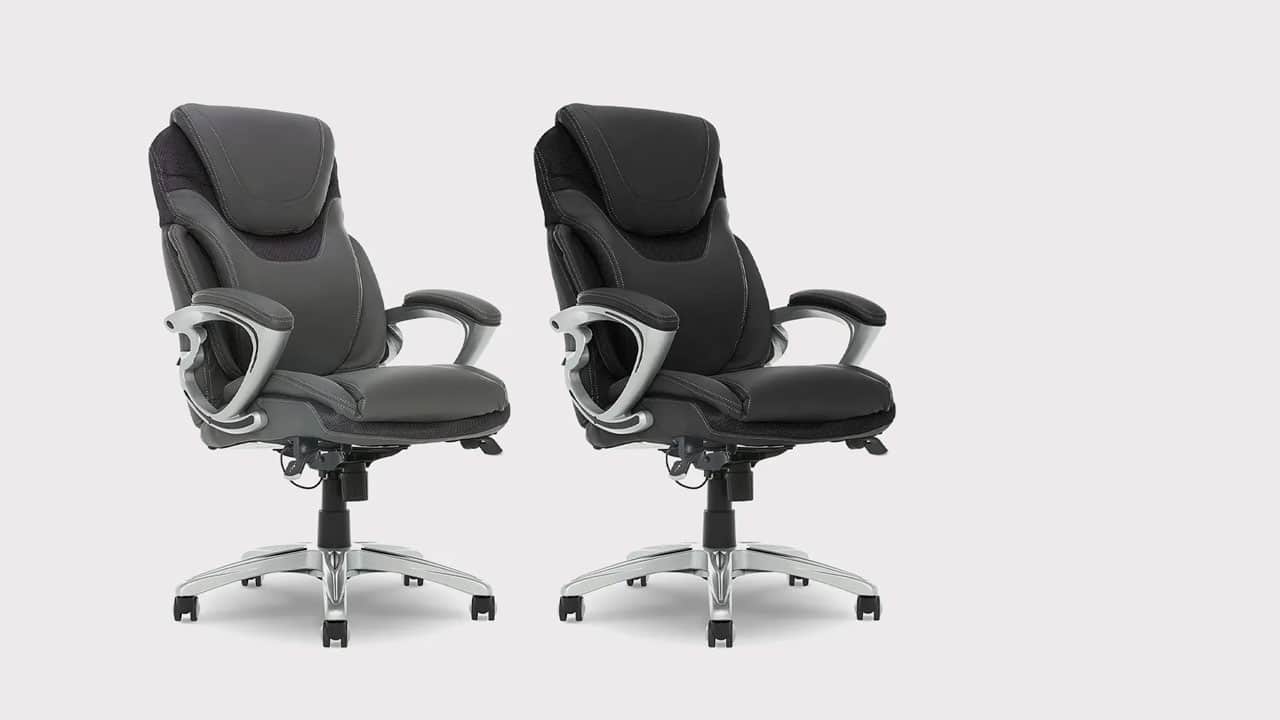Office chairs are tasked with keeping us comfortable and supported throughout the length of the working day. Office chairs come in all kinds of shapes and sizes, to support all kinds of unique needs. The only problem is that it can sometimes be difficult to tell which type of office chair is best for an individual. This can lead many of us to settle for office chairs that can’t possibly hope to meet our needs.
One of the many types of office chairs on the market is bariatric office chairs. But what are bariatric office chairs? What makes them different from ordinary office chairs? And should you grab one of your own?
Keen to avoid mixing up your office chair types? Then you’ll want to keep reading below. In this guide, our Reliant tech experts will take you through the key factors that set bariatric office chairs apart from the rest.
What Are Bariatric Office Chairs?
Bariatric office chairs are specially designed to cater to the needs of larger users. While standard office chairs are great for all kinds of body types, they do have limits. In particular, standard office chairs have distinct weight limits. This can make them inaccessible to users who might be on the slightly heavier side.
Bariatric office chairs are those with higher weight capacities. Standard office chairs tend to have an 18 stone weight capacity. Bariatric office chairs are designed to support users that weigh over 18 stone!
A standard office chair will usually have a maximum weight capacity of around 18 stone. Bariatric office chairs are specially designed to support individuals who aren’t supported by standard office chairs. Many bariatric office chairs are designed to support weights all the way up to 39 stone.
For the most part, bariatric office chairs are actually designed to look very similar to standard office chairs. This is so that users of the chairs don’t feel singled out or mocked by being forced to sit in obviously different chairs!
Bariatric Office Chairs vs Standard Office Chairs?
Aside from their higher-weight capacities, bariatric office chairs do have some other key features. For one, they tend to be much wider. This ensures there’s plenty of support for those with a wider frame. The wider seat also prevents leg pains. When heavier users are forced to use smaller office chairs, they often have to cramp their legs together just to stay upright on the seat. Wider seats allow the legs to spread out. This keeps leg muscles from being fatigued.
Bariatric office chairs also have reinforced mechanisms. This means you can lean back and relax, without fear of the chair buckling. These reinforced mechanisms also allow you to tilt and adjust the various parts of the chair to suit your needs. Again, without fear of the mechanism buckling.
Bariatric office chairs also commonly have special heavy-duty armrests that can support the user’s weight. Not only are these great for providing comfort during the working day, but also for moving in and out of the chair. Heavy-duty armrests are designed so users can put their weight on them to help with dismounting.
Why Does Weight Capacity Matter In Office Chairs?
It’s important to consider the weight capacity of your office chair because it’s crucial to your comfort. Bariatric office chairs are designed to keep heavier users comfy. If you sit in an office chair that you’re a little too heavy for, then you’ll quickly find yourself with all kinds of aches and pains across the body!
If an office chair is not suited for your weight, there will be more of a strain placed on your back. Especially toward the lumbar region. All of that pressure on the lumbar region would quickly lead to back aches that ruin the rest of your day!
What Are The Pros And Cons Of Bariatric Office Chairs?
Pros
- Perfect for supporting heavier users.
- The wider seat gives legs plenty of breathing room. Preventing leg pain!
- They are designed to look incredibly subtle. So as to not single out or shame users.
Cons
- They cost a little bit more than standard office chairs.
- Despite supporting heavier users, bariatric office chairs still have their own weight limits.

Are Bariatric Office Chairs Worth It?
Absolutely. Though an ordinary office chair might seem to suffice, it’s best not to saddle yourself with an office chair that can’t support you. If you find that ordinary office chairs don’t suitably support your weight, then it’s absolutely worth investing in a bariatric office chair.
Bariatric office chairs are absolutely worth the investment. If you’re too heavy for an office chair, it won’t be able to provide the support you need. This leaves you more vulnerable to back and neck pain.
Bariatric office chairs are shame-free, as they are designed to be visually similar to standard office chairs. Despite their visible similarities, however, bariatric office chairs are much more supportive and comfortable for heavier users!
Frequently Asked Questions
What Are Bariatric Office Chairs?
Bariatric office chairs are heavy-duty furniture designed for users on the heavier side. This is to account for the average weight limit of standard office chairs, which tends to be around 18 stone. Bariatric office chairs are designed to withstand larger weights, while also providing support for users that require them!
How Strict Are Weight Limits On Office Chairs?
It is possible to slightly exceed the weight limit of an office chair, without it buckling. However, we would strongly recommend against exceeding the weight limit. Not only does it put the chair at risk, but also your own health and safety. There could be nothing worse than taking an accidental tumble toward the ground while you’re in the middle of your work!






0 Comments